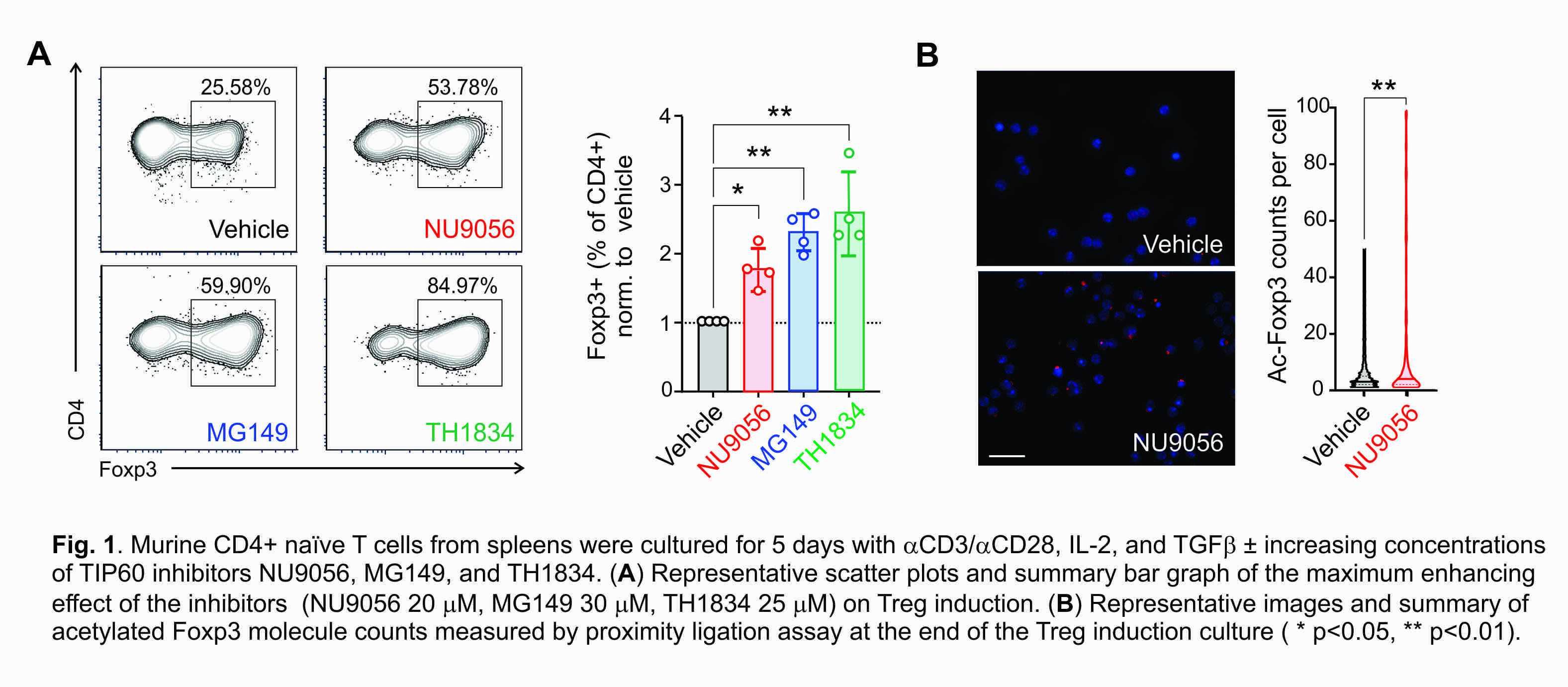Tip60 Inhibitors Enhance Regulatory T Cells (Treg) Induction by Promoting Acetylation of Foxp3
1Department of Medicine, Translational Transplant Research Center, Icahn School of Medicine at Mount Sinai, New York, NY, 2LaCàN, Universitat Politècnica de Catalunya-BarcelonaTech, Barcelona, Spain
Meeting: 2021 American Transplant Congress
Abstract number: 558
Keywords: Immunosuppression, Lymphocytes
Topic: Basic Science » Lymphocyte Biology: Signaling, Co-Stimulation, Regulation
Session Information
Session Name: Lymphocyte Biology: Signaling, Co-Stimulation, Regulation
Session Type: Poster Abstract
Session Date & Time: None. Available on demand.
Location: Virtual
*Purpose: TIP60, a histone/protein acetyltransferase essential for multiple functions in the cell, is involved in Foxp3 acetylation in Treg. Acetylation protects Foxp3 from degradation, and acetylated Foxp3 translocates to the nucleus to activate the immunosuppressive transcriptional program. TIP60 inhibitors have been studied in the context of cancer, but their effect on Treg remains unknown.
*Methods: We performed in vitro murine and human Treg inductions in the presence or absence of three TIP60 inhibitors (NU9056, MG149, and TH1834) and analyzed Foxp3 expression using flow cytometry, and Foxp3 acetylation using a proximity ligation assay.
*Results: In vitro Treg induction cultures (murine and human) showed that TIP60 inhibitors augment the percentage of Foxp3+ cells in a dose-dependent manner (Fig. 1A). To address the molecular mechanisms we performed mathematical modeling that hypothesized an activating effect of TIP60 inhibitors through an increase of Foxp3 acetylation, which we then validated experimentally in our cultures (Fig.1B).
*Conclusions: Our data newly indicate that TIP60 inhibitors have immunomodulatory properties with the potential to prolong allograft survival.
To cite this abstract in AMA style:
Fueyo-Gonzalez F, Vilanova G, Fribourg M. Tip60 Inhibitors Enhance Regulatory T Cells (Treg) Induction by Promoting Acetylation of Foxp3 [abstract]. Am J Transplant. 2021; 21 (suppl 3). https://atcmeetingabstracts.com/abstract/tip60-inhibitors-enhance-regulatory-t-cells-treg-induction-by-promoting-acetylation-of-foxp3/. Accessed February 20, 2026.« Back to 2021 American Transplant Congress

